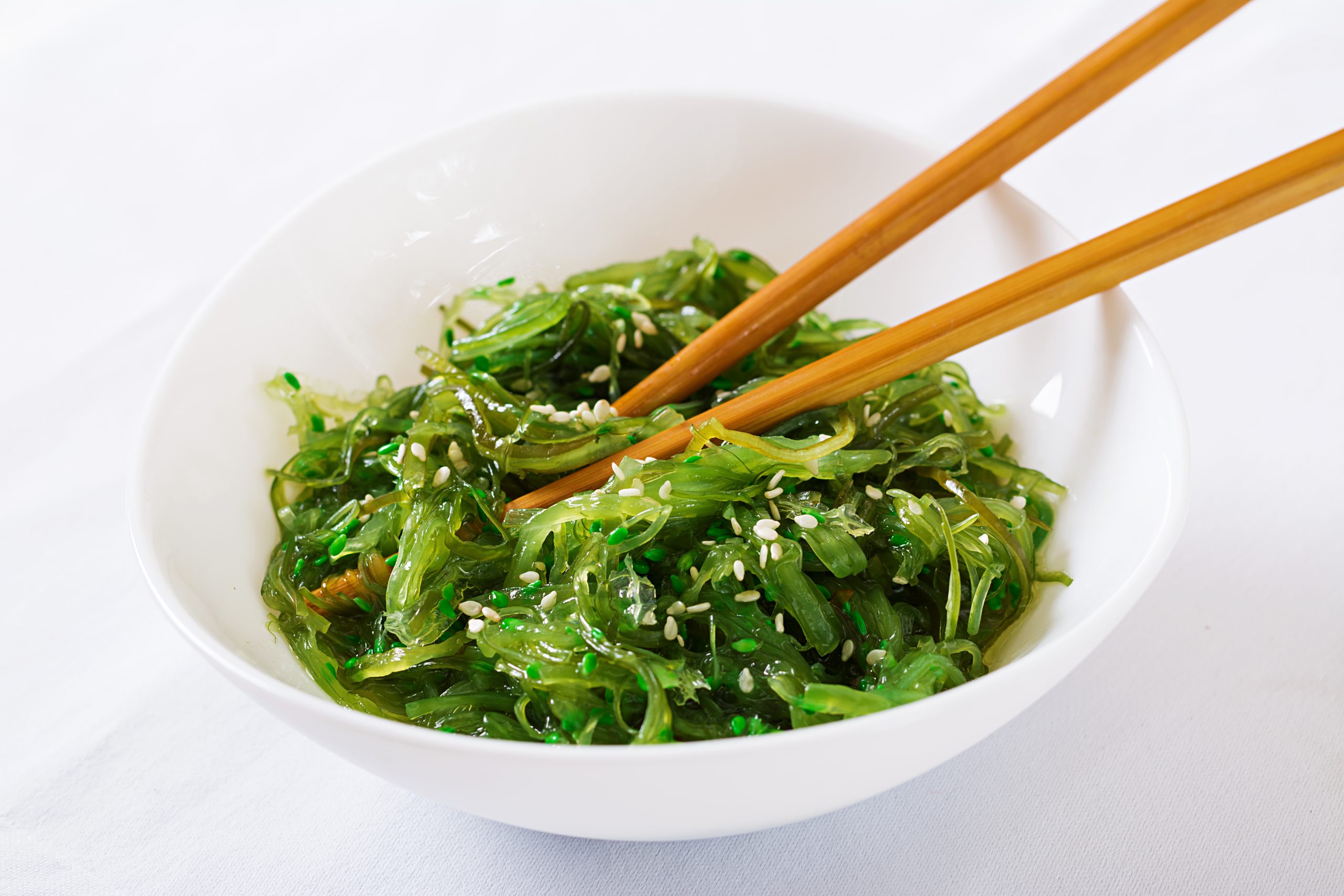Fucoidan Health News October: Are you getting enough iodine?


Are you getting enough iodine?
Iodine is an essential micronutrient and one of the key components of thyroxine. Thyroxine plays a crucial role in many essential bodily functions, such as transforming food into energy, regulating body temperature, supporting healthy metabolism, and also supporting growth and development.
But how do you know if your daily iodine intake is enough? Should I consume seaweed or any supplements to get iodine? Let’s hear it from the experts.
How much iodine do we need a day?
As our bodies do not produce iodine and cannot store large amounts of it, we have to include iodine in a small amount to our regular diet. The World Health Organization recommends 150 mcg of daily iodine intake per day for adolescents (over 12 years old) and adults, and 250 mcg per day for pregnant and breastfeeding women. In addition, the safe upper limit for healthy adults is 1,000 micrograms of iodine per day.
Foods high in iodine

- Seaweed (such as kelp, wakame, seaweed and kombu) is one of the best sources of iodine. Each species of seaweed contains a different amount of iodine. Kelp is often present in the diet of Okinawa residents, which is rich in minerals, vitamins and fucoidan, and is low in calories. Eating seaweed 1-2 times a week can help maintain good health.
- Iodized table salt is the most stable source of iodine available in the United States and many other countries. The World Health Organization recommends a daily salt intake of no more than 5 grams per person. Excessive consumption can lead to excessive sodium levels in the body, increasing blood pressure and the risk of getting cardiovascular disease.
- Iodine is also present in eggs, milk and dairy products, as well as seafood such as shrimp, tuna and cod.
- Fruits and vegetables contain iodine, but the amount varies based on the soil they are grown in and the fertilizer used.
What happens if we have too little or too much iodine?
Iodine deficiency rarely occurs in Japan due to the inclusion of seaweed in their diet. However, iodine intake is insufficient in many countries around the world. When your body lacks iodine, the thyroid gland grows larger and forms a goiter in an attempt to compensate to the lack. If the iodine intake remains insufficient, the thyroid becomes inactive. It produces very little thyroid hormone, which may lead to “hypothyroidism.” In adults, symptoms include slow reflexes, obesity, menstrual disorders, rough and thinning hair, puffy skin and hoarseness. In addition, iodine deficiency during pregnancy can cause the risk of miscarriage, mental retardation, and congenital disabilities in the newborn.
Hence, if there are problems with insufficient iodine intake, can we consume more iodine-rich foods such as seaweed and nori to supplement iodine? Unfortunately, the answer is no. Excessive intake can lead to higher iodine levels in the body. In a healthy adult body, increased iodine intake can be regulated by excretion, with most excess iodine excreted in the urine through the kidneys and some in the feces. However, long-term excessive iodine intake can reduce the production of thyroid hormones, resulting in hypothyroidism, bulging eyes, goiter, weight loss, tachycardia, and other problems in some vulnerable individuals.
On a positive note, Umi no Shizuku Fucoidan is extracted from seaweed. It is possible that our customers are worried their daily intake of such high iodine content may result in adverse health effects. However, the truth is, Umi no Shizuku Fucoidan contains a tiny amount of iodine. For Fucoidan Capsule Type, you would need to take over 100 capsules daily to exceed your body’s tolerance limit—Fucoidan Drink Type contains almost no iodine. Rest assured, our products will not cause harm to you or your body while taking them.
The right amount of iodine supplement is crucial for the thyroid health. Both deficiency and excess iodine can affect thyroid hormone production, resulting in hyperthyroidism or hypothyroidism. So we only need a small amount of iodine from our regular diet. If you are unsure if your iodine intake is enough, you should consult a registered dietitian or doctor to check your thyroid function.
References:
https://www.ejim.ncgg.go.jp/public/overseas/c03/03.html
https://www.fhs.gov.hk/tc_chi/health_info/woman/30146.html
https://www.thyroid-expert.net/thyroid-and-iodine/
